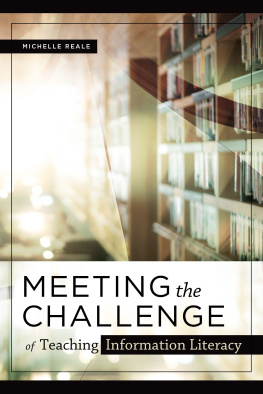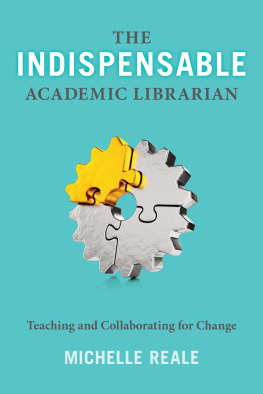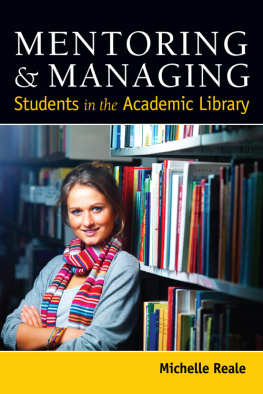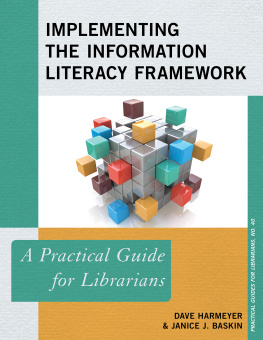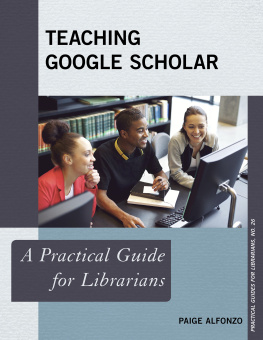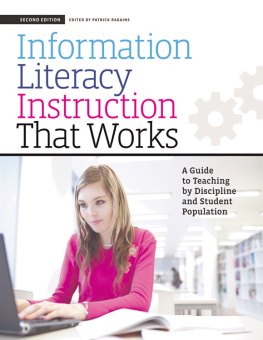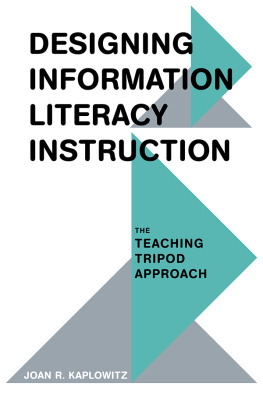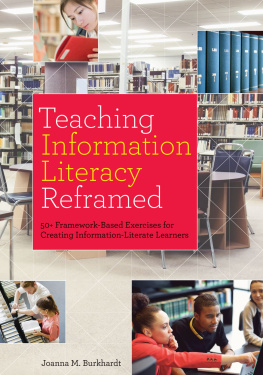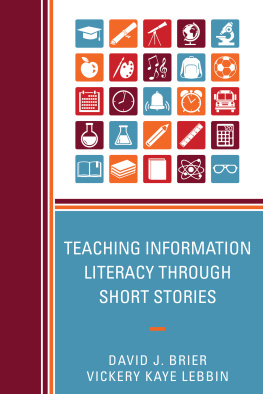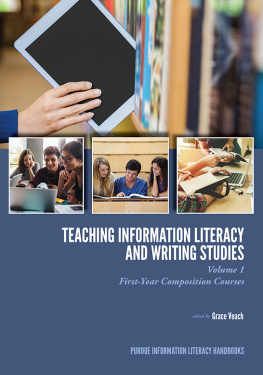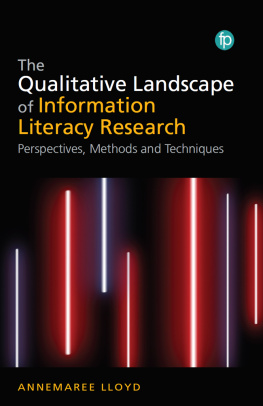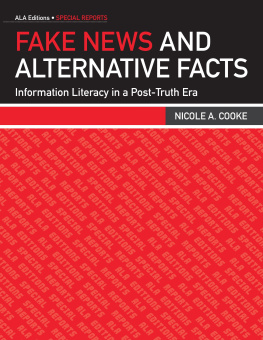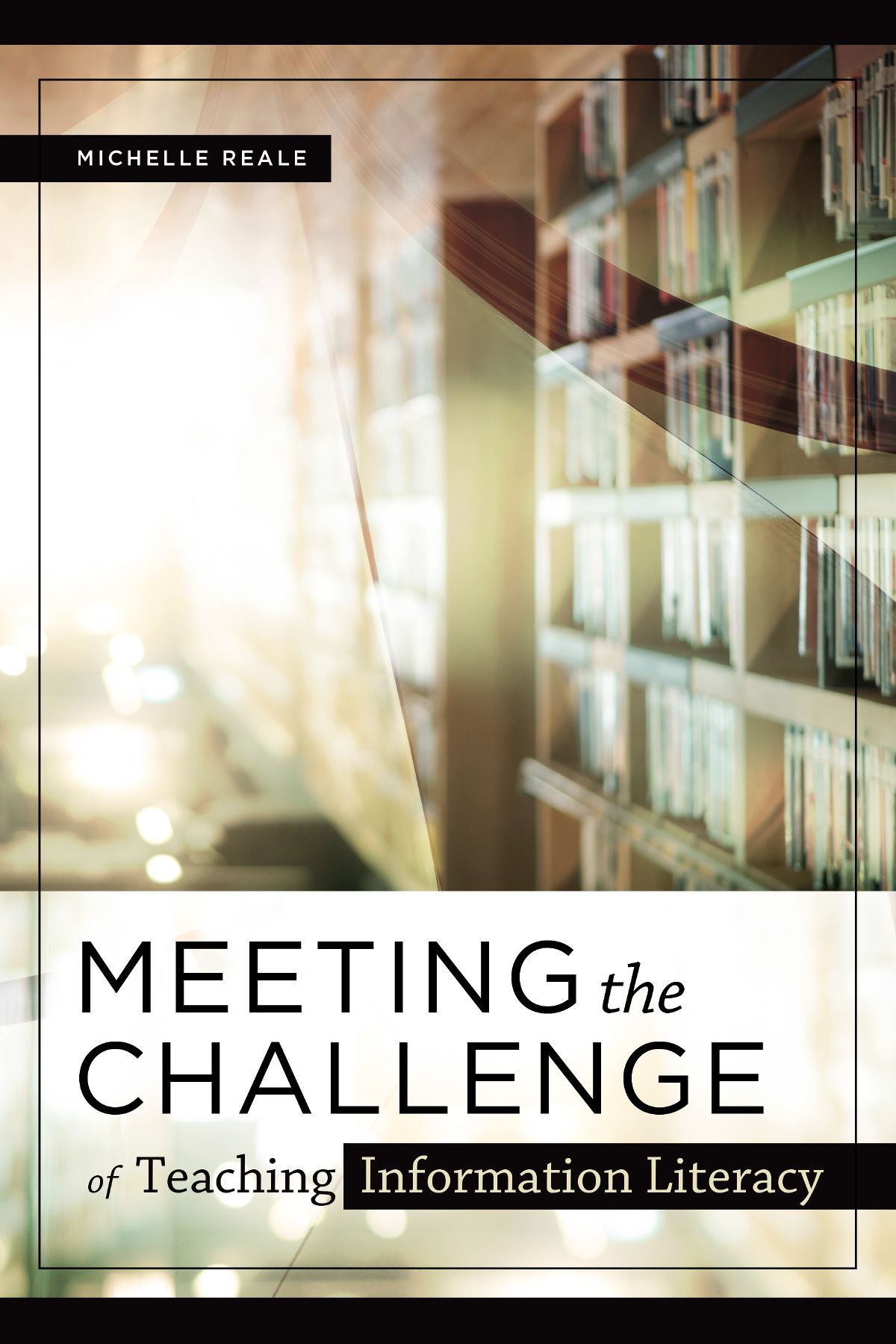
ALA Editions purchases fund advocacy, awareness, and accreditation programs for library professionals worldwide.
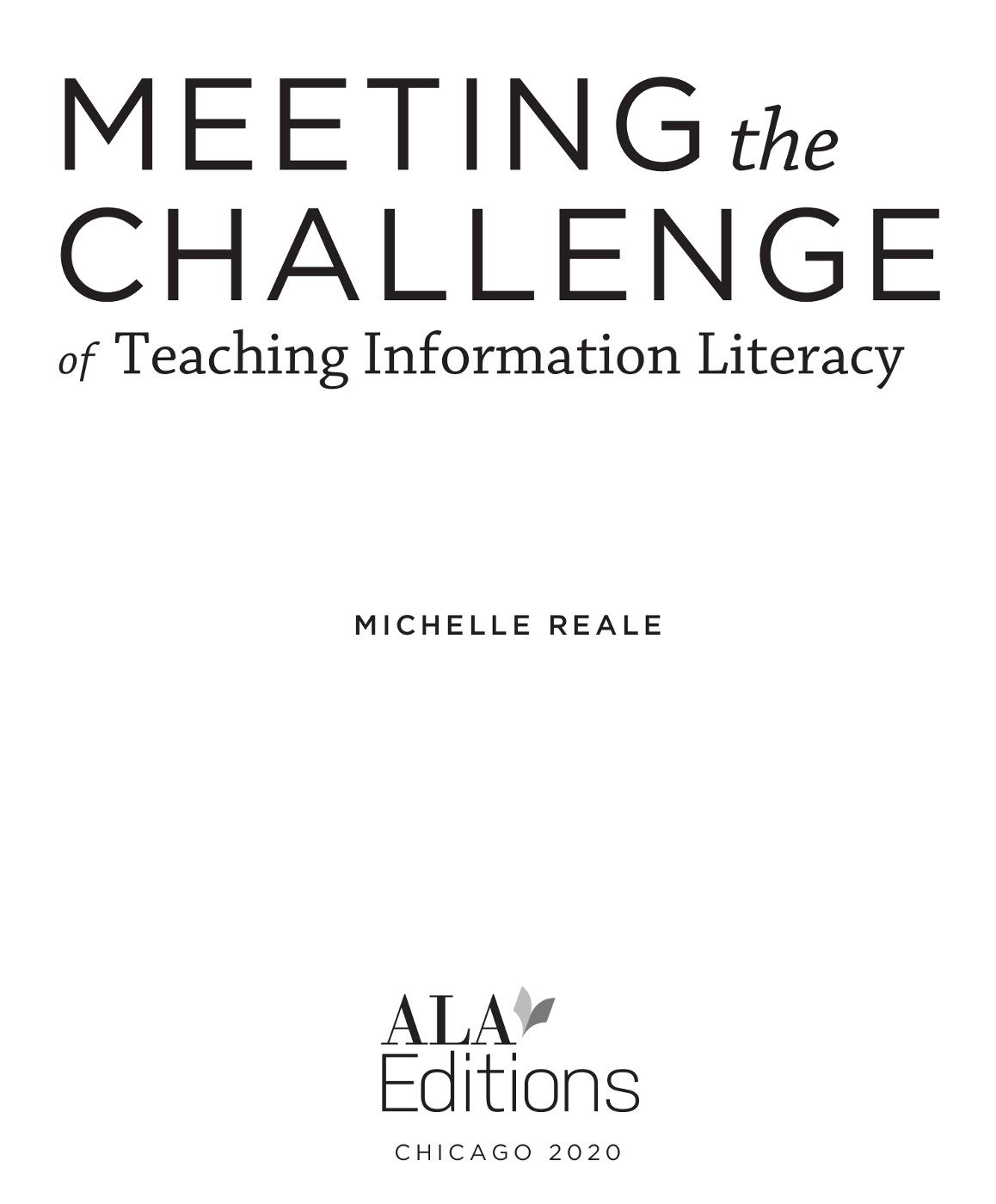
MICHELLE REALE is a professor and access services and outreach librarian at Arcadia University. Her books include Inquiry and Research: A Relational Approach in the Classroom, The Indispensable Academic Librarian: Teaching and Collaborating for Change, Mentoring and Managing Students in the Academic Library, Becoming an Embedded Librarian, and Becoming a Reflective Librarian and Teacher: Strategies for Mindful Academic Practice. Her research interests are embedded librarianship, mentoring, narrative inquiry, poetic inquiry, and reflective practice.
2020 by the American Library Association
Extensive effort has gone into ensuring the reliability of the information in this book; however, the publisher makes no warranty, express or implied, with respect to the material contained herein.
ISBNs
978-0-8389-4684-8 (paper)
978-0-8389-4714-2 (PDF)
978-0-8389-4713-5 (ePub)
978-0-8389-4715-9 (Kindle)
Library of Congress Cataloging-in-Publication Data
Names: Reale, Michelle, author.
Title: Meeting the challenge of teaching information literacy / Michelle Reale.
Description: Chicago : ALA Editions, 2020. | Includes bibliographical references and . | Summary: This book discusses the challenges librarians face when teaching information literacy and offers a springboard for reflection that can lead to changeProvided by publisher.
Identifiers: LCCN 2019051419 (print) | LCCN 2019051420 (ebook) | ISBN 9780838946848 (paperback) | ISBN 9780838947135 (epub) | ISBN 9780838947142 (pdf) | ISBN 9780838947159 (kindle edition)
Subjects: LCSH: Information literacyStudy and teaching (Higher)United States. | Information literacyStudy and teaching (Higher)United StatesCase studies. | Academic librariesRelations with faculty and curriculumUnited States. | Academic librariansProfessional relationshipsUnited States.
Classification: LCC ZA3075 .R434 2020 (print) | LCC ZA3075 (ebook) | DDC 028.7071/173dc23
LC record available at https://lccn.loc.gov/2019051419
LC ebook record available at https://lccn.loc.gov/2019051420
CONTENTS
Necessity is the mother of invention.
F or far too many semesters now, I have thought and reflected on why teaching information literacy (IL) feels so difficult, sometimes so fraught with tension. I used to think it was me. Maybe I wasnt working hard enough, maybe I wasnt congenial enough with faculty, maybe what I was offering wasnt convincing enough. I maintained a constant note to self: do better. Occasionally, I would lose sleep worrying about a scheduled session the following day. I would prepare and pore over lesson plans, then rewrite them all over again. I would express my feelings at our reference meetings, and my colleagues would murmur in agreement with me, validating my thoughts, which helped in the moment but, of course, did not solve the problem. I wasnt even sure, really, what the problem was. But I do know that deep down, no matter what I knew intellectually or how I wrote about the issue, I couldnt shake the feeling that peace would come if I tried just a little harder.
Being a reflective practitioner has helped me see a bit more clearly. Over a period of time, I was very intentional about what I chose to reflect onI chose to concentrate almost exclusively on those things that I felt made the teaching of information literacy, as an academic librarian, so difficult. I already knew that I wasnt alone. Our professional literature explicates in many different ways, by an array of writers, all the vagaries of the teaching librarian, although articles usually focus on one particular aspect, such as lack of collaboration between faculty and librarian, limited amount of time, the perception others have of us, and so on. The list is a long one. But few, if any, articles dealt with the multifaceted reality of why our mandate is one that is often difficult to execute.
I wanted to examine, in a relational way, what some of the more hidden factors were. What I sought, simply because I desperately needed to make sense of it myself, was a much fuller picture. That is how this book came about. This book is probably not for you if you neither perceive nor experience any difficulties as a librarian teaching information literacy at your university. If you do not perceive a problem, then there is none. But for those who do, this book may help you concretize what you may have been feeling either explicitly or implicitly. I feel that it is really important to begin to understand and see, in black and white, what our challenges are so that we can personally begin to address them. This book does not offer a quick fix, not by a long shot. It also will not offer solutions as some of us have come to want or expect; rather, these chapters seek to explicate a problem or issue that we can further reflect on to find individual solutions. I have included a Points to Ponder section at the end of every chapter so that you can begin to reflect, in your own personal and professional way, on some of the issuesif, in fact, they apply to you.
In this book, I use a lot of personal anecdotes. Using primary methods of representation rather than relying solely on the research of others, I write from a very personal stance in order to prevent theoretical distance, which can be all too easy to fall into. Anzalda proclaims that writing is a process of discovery and perception that produces knowledge and conocimiento (insight).
Stories abound in our work as librarians and teachers, and they intersect on a daily basis with our humanity and the humanity of others. So while writing about the challenges of teaching information literacy, I attempt to remain human and connected to everyone doing the same thing that I am doing every day during busy semesters. More than ever, storytelling within this type of work is very importantit is relational, it forges connections, and it validates. Andrea Barrett further bolsters the importance of sharing personal experience and reaches the heart of it when she says, Theres something epistemological about storytelling. Its the way we know each other, the way we know ourselves.
Finally, it must be said that this book is meant to be generative and propulsive to your own professional practice. It is meant to highlight areas of challenge and concern to those of us who teach information literacy in academia. It is meant to be used, and, in fact, is best used, in conjunction with reflective practice as a way of understanding the origins of our challenges, which then allows us to forge a path forward. Our busy semesters do not often afford us the time to think about these thingsand for the most part, we dont, because, well... we have work to do! But like anything else we want to accomplish, we have to be intentional about finding the time, which is perhaps the most difficult challenge of all. But like the quote at the beginning of this introduction, necessity really is the mother of invention. Our rapidly changing profession exists in a rapidly changing world. It is, of course, much easier to go with the flow, to sublimate how we feel, and to resolve to deal with any issues we have with teaching on any other daybut not today. Like most of us already know, those days turn into weeks, weeks turn into months, and months turn into years. The semesters will keep on happening, will keep on rushing by.
Next page
